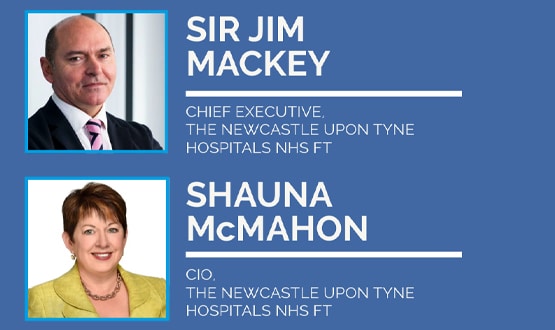Connelly outlines NHS info ‘revolution’
- 1 October 2010
The NHS’ director general of informatics, Christine Connelly, has outlined an information revolution for the health service to match the root and branch reform promised by the Conservative-Liberal Democrats government.
“The model for healthcare in its entirety is being redesigned and recast. Given this change we need to re-design the model for informatics in step," Connelly told a conference in central London.
“We need to start to design that now. What does a commissioning world look like? What does a provider world look like?”
She said that the government was planning “very new kinds of structures and organisations, and a new approach to information is needed to build bridges to connect the different parts."
Although a radical new departure, Connelly said that, crucially, a new information strategy was being drawn up in tandem with the new blueprint for health care.
She told her audience that the new government’s white paper ‘Equity and excellence, Liberating the NHS’ had three themes each of which depended on information.
These were: “achieve improved clinical outcomes”, “empower clinicians to deliver services based on patient needs”, and “deliver efficiency savings in the tough financial environment”.
“The white paper says that to deliver these objectives will require an information revolution,” said Connelly, who quipped. “I’m told leaders of revolutions often get shot.”
NHS chief executive Sir David Nicholson announced in a recent letter to the NHS that Connelly would lead the information revolution.
At the conference, she acknowledged that the National Programme for IT in the NHS, for which she remains responsible, remains unfinished business. But she said: “It’s an important part of the delivery system for health informatics in England."
Connelly echoed the recent ministerial statement on the future of the programme by saying that the national infrastructure elements now “have a scale and maturity that is essential to the NHS."
However, she said there were still difficulties with local services, where there is a need to move from projects to mature services.
“In Rio and Cerner we still doing lots of projects which we want to make much more in step with local priorities.”
Connelly promised “a definite change in how we will approach projects”. She explained: “We’ve got to get to the point of exploitation and deployment. We’ve got some way to go on that.”
Part of the move to reflecting local priorities would come through the ‘connect all’ agenda, she said; with interoperability and standards being crucial. “We need technical standards and data standards. ITK – the interoperability toolkit – is actually exciting, it allows people to connect locally.”
Connelly outlined how in her dual roles of NHS CIO and DH lead on ‘patient empowerment and publication of information on quality’ she planned to deliver the promised revolution, that would focus on the patient and their ‘experience’.
She outlined a future of health services based on online information and self-service transactions for navigating and interacting with health providers, with citizens ‘empowered’ to take control of their health.
Drawing a familiar analogy from outside health, she pointed to how far information-based services have evolved in service industries like travel, where we are now used to choosing and booking holidays online, taking decisions guided by review sites like Trip Advisor.
“So it’s not just about great websites that tell you about how good your doctor is but sites that help you to take charge of your healthcare and experience,” said Connelly.
At the heart of this ‘empowerment’ agenda will be “giving patients control of their records”, said added. “How do I get access to information about me? We will be consulting about this more in the autumn.”
She added: “If the system can deliver information to me it can deliver information to other parts of the system.”
She also made it clear that a national system of Summary Care Records, or a data repository that draws data from local source systems and that provides data for secondary uses as well as clinical care, remains at the heart of DH thinking.
“The expectation is that different GP consortia would be able to draw aggregated patient data from the base systems rather than collecting a disconnected data set.”
The government is due to publish its NHS information strategy, followed by a three month consultation. Publication is pencilled in for mid-October.




